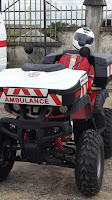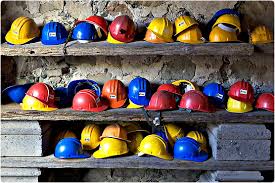In 2015 mining in Nigeria, is still over run with illegals working on a small scale and rarely are emergency services or medical strategies in place that ensure a safer working environment.
The current situation of dangerous working environments, lack of onsite strategies, low literacy and unlicensed medical practitioners make rescue operations far too dangerous for medical teams, with operations to assist and recover illegal miners abandoned. The mining sector is in desperate need of advancing and addressing inadequate medical transportation methods.
With many casualties still reported, Muhammadu Buhari's government and Dr Nnamdi Ilodiuba (ISPON), Dr Okon Akiba (OKLNG & SOEPHON), Dr Olutomiwa Ogunbona - Flying Doctors Nigeria have ‘one goal in mind’ and already addressing significant issues
A clamp down on illegal activity, unlicensed medical practitioners and improving key emergency service issues in the sector.
Their ingenuity is paramount in securing a safer more secure working environment and instilling confidence in the international investment opportunities arising for Nigeria.
Currently medical emergency transport and services rely mainly on road and air ambulance. With many various methods of medical evacuation proving to be continual problems, such as under developed waterways, railways and roads, air emergency transport is the only viable option in securing exceptional healthcare practices for workers. Flying Doctors Nigeria specializes in air ambulances, medevac, medico-logistics services, and offer an alternative solution to sourcing trained doctors, nurses, paramedics for your onshore or offshore on-site operations.

Having taken to the skies since 2007, the team have this month adopted land rescue in the form of , revolutionising the provision of emergency healthcare to remote locations in Nigeria. The bikes offer a much more capable solution in offering rapid response, where poor roads and remote locations would make reaching medical emergency patients an impossible task.
Running high-risk operations in sectors like oil and gas and mining, remote emergency services are imperative. Flying Doctors Nigeria specialise in providing plans for corporate bodies to accommodate the speedy handling of emergencies arising from work-associated incidents. Contacting the team has never been easier to see if were a suitable for your company’s needs.




















